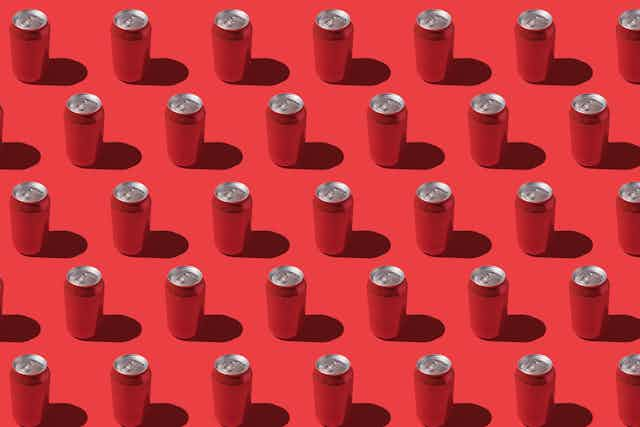Death rates in South Africa have declined slightly during the past few years. But the country faces a steady rise in both death and disability caused by increases in non-communicable diseases such as diabetes and cancer.
According to the NCD Alliance, a civil society network, non-communicable diseases cause 71% of deaths globally. Of these deaths 85% occur in low and middle income countries.
In South Africa, according to Statistics South Africa, there was an increase of 58% in deaths from non-communicable diseases from 1997 to 2018. Diabetes is the second leading cause of death in South Africa after tuberculosis.
Diabetes affects 12% of the adult population, wreaking massive damage to individuals’ health and livelihoods, and to the national fiscus. The direct cost of diabetes to South Africa’s health system is R2.7 billion (US$150 million) – and that is only for those patients who are diagnosed. It does not factor in the indirect costs of loss of jobs and income.
If all cases were diagnosed and treated, PRICELESS SA, a research unit based at the School of Public Health at the University of the Witwatersrand, estimates this would cost R21.8 billion (US$1.2 billion) a year, rising to R35 billion (US$1.9 billion) in real terms by 2030.
Finance minister Enoch Godongwana will table the medium-term budget policy statement this week. Based on our research and the experience elsewhere in the world, we believe Godongwana has an opportunity to improve both South Africa’s fiscal health and its public health in one swift, effective action: by increasing the Health Promotion Levy, better known as the “sugar tax” on beverages.
Why the urgency?
Most South Africans with diabetes are either diagnosed very late, by which time they are much sicker, or are not diagnosed at all. The SA Demographic Health Survey data from 2016, the most recent study, found that 67% of all men and women were “pre-diabetic” and suggested that a “large portion” of South Africans remained undiagnosed, and therefore untreated.
Untreated or badly controlled diabetes can result in amputations, kidney failure and blindness. Many of these same individuals also have high blood pressure and end up with stroke as a result of brain haemorrhage.
Obesity is known to be linked to diabetes – and rates of obesity and overweight people, too, are increasing relentlessly. Current rates of obesity in South Africa are 11% among men (with another 20.3% overweight), and 41% among women (with another 26.6% overweight). At this rate it is expected that 50% of South African women will be obese by 2030.
Both obesity and diabetes are known to be triggered by over-consumption of sugar. Liquid sugar is known to be particularly harmful and has no nutritional value. This is why the public health recommends at least a 20% tax on sugary beverages.
The Health Promotion Levy should also include 100% fruit juices in the list of products subject to the tax.
Sugar tax
In 2018, in an attempt to address South Africa’s obesity, diabetes and other non-communicable diseases, National Treasury imposed a tax on sugar-sweetened beverages, known as the Health Promotion Levy. It equates to 2.1 cents per gram of sugar above a 4 gram threshold per 100 millilitres – which amounts to a levy of approximately 11% on the price.
As of June 2022, the sugar tax alone had raised more than R10 billion (US$750 million) in revenues that went directly to the treasury. Only R24 million (US$1.3 million) in 2019/2020 and R14 million (US$0.7 million) in 2020/2021 was allocated to expenditure on “health promotion”.
But the South African sugar industry fought the sugar tax from the outset. The tax started out at a lower rate than originally planned: it was designed to be 20% in line with World Health Organization recommendations, but was slashed to 11% because of sugar industry pressure during a prolonged public consultation period. The already ailing industry alleged it would cause further job losses.
In reality, other global sugar market realities are the cause of declines in local sugar production and jobs. For example distorted global prices are below South Africa’s cost of production. This predated the introduction of the sugar tax.
The South African government has not increased the sugar levy from its initial 11% in the five years since it started. It has put previously planned increases on hold. In the February 2023 budget speech the minister again imposed a two-year moratorium on the Health Promotion Levy, not even allowing for an inflation-related increase. In real terms, the sugar tax has effectively been reduced.
The South African Sugarcane Growers’ Association has expressed concern at the prospect of an increase in the levy, fearing negative impacts on the sugar industry. Yet research from PRICELESS, analysing data from the South African Quarterly Labour Force Survey from January 2008 to June 2019, shows that the sugar levy has had little effect on sugar-industry employment. Even at its current weaker-than-ideal rate, the tax has reduced consumers’ consumption of sugary beverages by about 2g per capita per day, separate research led by PRICELESS SA scientists shows.
Government could turn the tide
To reverse South Africa’s fatal diabetes trend and pour additional, much-needed billions into public funds, the government should increase the rate of the Health Promotion Levy to the 20% endorsed by the WHO.
Early detection and treatment is key to reducing the disabling effects of diabetes and the cost to the state. Therefore better diagnosis in the public health system should be prioritised – and funded from Health Promotion Levy revenues.
The fact that the Health Promotion Levy has already yielded more than R10 billion to the treasury is testament to its revenue potential. The win-win consequences of raising the levy seem indisputable.

